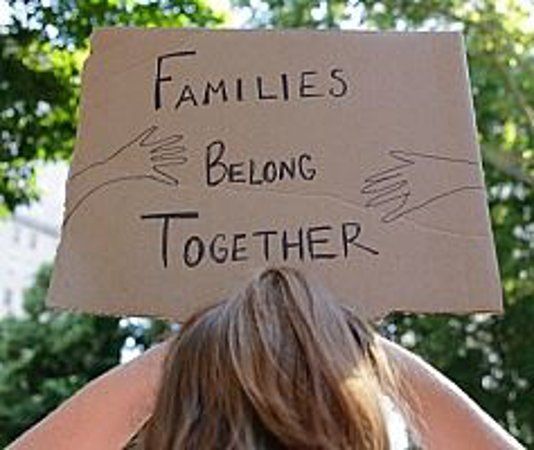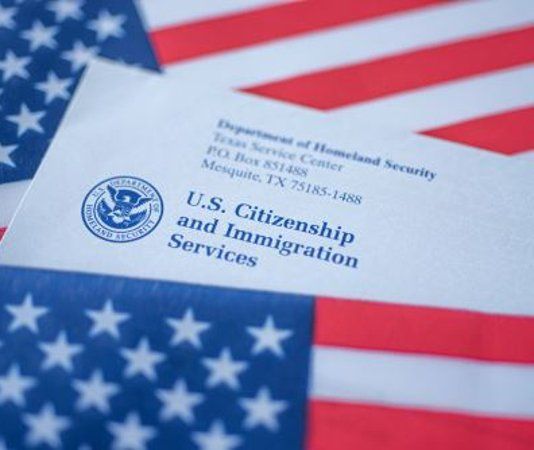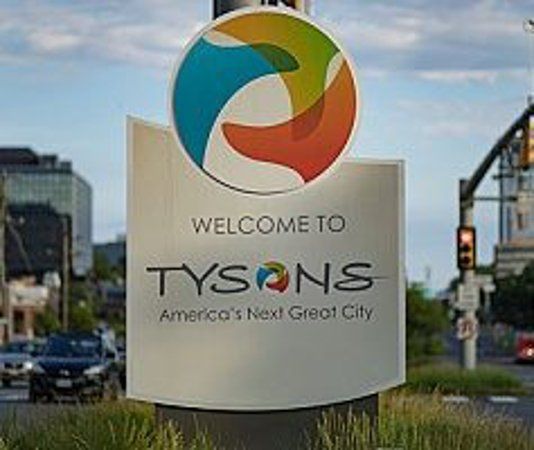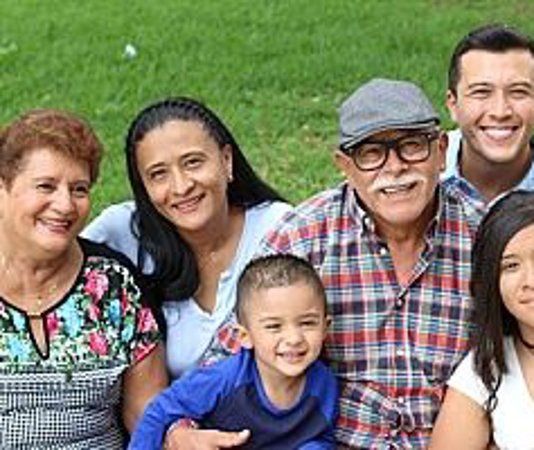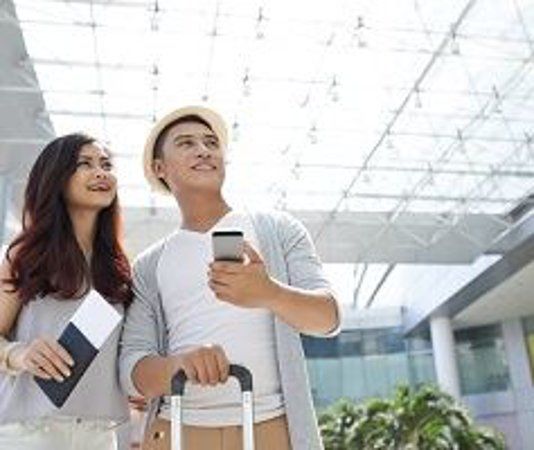Languages: English, Spanish, Portuguese, عربي, and فارسی.
Reston, VA Immigration Attorney
Reston, VA Immigration Attorney
If you are looking to secure an immigration visa or begin your application for an immigration waiver, the immigration attorneys at Johnson & Masumi, P.C. are ready to assist you. Our attorneys are experienced in all aspects of immigration law and have served thousands of clients from many countries, helping them obtain visas to reside, tour, and be employed in the U.S. Mariam Masumi, our principal Reston, VA immigration attorney is dedicated to ensuring our clients receive personalized assistance with their visa or waiver applications. She believes in making sure that all individuals are able to enjoy their rights to democracy, justice and happiness in the United States. Trust Johnson & Masumi to fight for your rights every step of the way.
Reston, VA Immigration Visas
Johnson & Masumi, P.C. practices immigration law in Reston, VA to help foreign nationals through the process of immigration, employment, student, and visitor visa applications. Once acquiring certain visas, individuals can qualify for applying for permanent residence through a green card status while residing in the U.S. We also serve clients who have been designated as “inadmissible” under USCIS law to be granted an immigration waiver to allow them residence in the U.S. after deportation. Our attorneys will dedicate their efforts in reuniting these individuals with their families after an extended absence.
Reston, VA Employment Visas
Foreign nationals who wish to live and work in Reston, VA can obtain a variety of employment visas. These visas include the: A Visa, EB Visa, and H-1B visa, each with their own categories that carry different requirements. In certain circumstances, a potential employer must petition the USCIS on the behalf of the foreign national they wish to employ. Once approved for employment, certain visa holders are allowed to become legal immigrants.
A-Visas
A visas are awarded to diplomatic officials who intend on traveling and or residing in the U.S. The A visas are categorized into three separate visas: A-1, A-2, and A-3. Foreign public ministers, consular officials and foreign diplomats can be granted A visas. Applicants who are international military officials, or those once qualified and honored by the U.S. Secretary of State can be granted A-2 Visa. Those who are either employees, associated officials, or family of A-2 visa holders can obtain legal entry under the A-3 visa status.
EB-1 Visa
Also known as the “First Preference Visa,” the EB-1 visa is awarded to applicants who are considered a higher priority on the list of immigrants with a higher potential of obtaining permanent residency Green Card status. The EB-1 visa is classified into three categories. EB-1A visas are awarded to individuals who possess extraordinary abilities as designated by the USCIS. The EB-1B visa is given to Outstanding Professors & Researchers, and the EB-1C visa granted to executives and managers.
EB-2 Visa
Those who have achieved advanced degrees or have other extraordinary abilities may qualify for EB-2 employment visas and be granted permanent residency. EB-2 visas also have three separate categories each with their own differing requirements.
EB-3 Visa
Foreign nationals who do not hold extraordinary abilities as designated by the USCIS can apply for an EB-3 visa and be awarded a Green Card for permanent residency. EB-3 visa holders are categorized into three classes of either Professional Workers, Skilled Workers and Unskilled Workers. EB-3 visa applicants must secure full time employment to qualify.
EB-4 Visa
Foreign nationals who work as religious leaders or faith-based nonprofit workers can qualify for an EB-4 visa. Also known as the “Fourth Preference” visa, these workers are granted an EB-4 visa if employed and in the U.S. under a religious or non-profit institution.
EB-5 Visa
The EB-5 employment visa is given to those who make a minimum investment of $500,000 in a USCIS designated Regional Center or $1,000,000 into a new commercial enterprise of their choosing. Investors are required to create at least 10 full-time jobs to qualify for permanent residency while operating their business in the U.S. EB-5 visas have recently become one of the most popular employment visas applied for, even amidst uncertainty surrounding cap limits and the potential rising minimum investment requirements.
H-1B Visa
The H-1B visa is awarded to those who wish to be employed in the U.S. within companies under a special occupation. Qualified applicants include those who hold at least bachelor’s degree in career fields such as: mathematics, engineering, science, medicine, technology, engineering, accounting and architecture. Applicants’ employers must file a petition to the USCIS on their behalf and be approved before an applicant can obtain an EB-5 visa. Due to the increasing cap limit restrictions placed on the H-1B visa, it may be more difficult to obtain than other employment visas.
Reston, VA Fiancé Visas
K-visas are granted to foreign nationals who intend on marrying a U.S. citizen when they move to the U.S. Children of visa holders can also qualify. K-visas include the K-1, K-2, K-3, and K-4 fiancé visa.
K-1 Visa
K-1 visas are issued to foreign national fiancés who wish to come to the U.S. in order to marry a U.S. citizen. Evidence must be provided by the fiancé to prove their intentions of marriage and then returning to their home country under the restrictions of the K-1 visa. In order to qualify for a K-1 visa, the fiancé of the applicant must petition on their behalf. The fiancé must arrive to the U.S. within six months of marrying a U.S. citizen, and then must promptly leave the country within a 90-day period. Should a fiancé wish to marry a different U.S. citizen, they must travel back to their home country to begin the application process again.
K-2 Visa
Children of a K-1 visa holder can be issued a K-2 visa to travel to the U.S. for the marriage of the fiancé and U.S. citizen. Children must be at least 20 years or younger and unmarried, however they are not required to be biologically related to the individuals being married. The foreign national fiancé must prove their relationship to their children, along with proof of their ability to properly support themselves and their children financially. Children issued a K-2 visa must also arrive to the U.S. within 6 months of the marriage and depart within 90 days.
K-3 and K-4 Visa
After the foreign national fiancé has entered a legal marriage with a U.S. citizen, they are eligible to return and and establish residence in the U.S. under K-3 visa status. Similar to the K-2 visa, the U.S. resident must file a petition on behalf of their spouse. Children of a K-3 visa holder can also reside in the U.S. with their parent as K-4 visa holders. Within the 2 year period of the K-3 visa, visa holders are permitted to travel in and out of the U.S. several times. After the 2 year period has elapsed, K-3 visa holders and their children under K-4 status may qualify for applying for permanent residency under green card status.
Reston, VA Student Visas
Foreign national students who intend on teaching, studying or being employed in Reston, VA may obtain different types of student visas. Each visa carries its own special requirements and restrictions that must be adhered to in order to be admitted into the U.S. These visas include the F-1, J-1 and M-1 visas.
F-1 Visa
International students who wish to study full time at a U.S. university and complete their course of studies can obtain an F-1 visa. These visa holders may also work for a U.S. employer in a position that is consistent with their courses of study. Students may receive sponsorship from their university official under the Optional Practice Training program. To be issued an F-1 student visa, applicants must file a Certificate of Eligibility and Form I-20. Additionally, students must complete an interview at a U.S. embassy or consulate representing their home country to discuss their educational goals and provide validation of their passport.
J-1 Visa
J-1 visas are issued to foreign students under the Exchange Visitor Program who wish to complete a course of study and subsequently be employed full time in the U.S. J-1 visa applicants must provide evidence of their status as a legal resident of their home country in addition to their plans to return to their home country after completing their studies. Documentation for this evidence should be provided by filing Form DS- 2019.
M-1 Visa
M-1 visas are granted to international students who wish to study in the U.S. under vocational or non-academic courses of study continuing over 12 semesters. Student applicants must be able to meet admission requirements for the institution they wish to enroll and provide any additional documentation. While completing their studies, M-1 visa holders may not be employed, but must present evidence that proves their ability to support themselves financially.
Reston, VA Visitor Visas
Foreign nationals who intend on traveling to Reston, VA or another U.S. location on business, vacation or medical reasons can apply for a B visa. These visas come in two categories, which are: the B-1 visa for business officials and the B-2 visa issued to foreign vacationers.
B-1 Visa
B-1 visas are granted to internationals who wish to travel to the U.S. on business. Applicants are disallowed from seeking or accepting employment in the U.S., conducting business as a foreign media representative or enrolling in an academic institution. B-1 visa recipients can live in the U.S. for up to a one-year period, but are permitted to extend their residency in increments of 6 months upon properly filing Form I-539 (Application to Extend/Change Nonimmigrant Status).
B-2 Visa
B-2 visas are issued to foreign nationals who wish to travel to the U.S. for leisure or to seek medical treatment and are valid for a period of 6 months. B-2 visa holders must provide evidence that they plan to leave the country after their visa period has expired and have no intention of immigration. B-2 visa holders can enroll in courses of study or recreational programs while in the U.S. — however, they may not accept employment.
Reston, VA Waivers
Though some foreign nationals are able to navigate the visa application process by fulfilling the basic requirements listed, some have a more difficult time due to their designation as “inadmissible” by the USCIS. Inadmissibility can be levied on a potential immigrant if they have any criminal, health, fraudulent, or illegal presence issues. The USCIS strictly prohibits these individuals from legally immigrating to the U.S. Although, in some cases, individuals with an inadmissible designation may have their status waived by obtaining an immigration waiver. The two categories of waivers include the I-601 Hardship Waiver and the I-601 Provisional Waiver.
I-601 Hardship Waiver
The I-601 Hardship Waiver may be obtained by an undocumented immigrant who can provide evidence that suggests their family residing in the U.S. would suffer from extreme hardship if they were to be removed from the country or if the foreign national were denied their waiver application. Undocumented immigrants may also qualify for an I-601 Hardship Waiver if they can prove their status as admissible if granted a waiver. The three categories of I-601 waivers include the Unlawful Presence Waiver, Misrepresentation Waiver, and Criminal Conviction Waiver. Family members of waiver applicants must also provide evidence of their potential sufferings of extreme hardship should they be deported.
I-601A Provisional Waiver
Foreign nationals who have been deported may qualify for an I-601A Provisional Waiver. These individuals are legally denied entry back into the U.S. for a 3 to 10 year period. An individual can apply for an I-601A waiver to decrease the duration of their banishment from the U.S. and remove their unlawful presence status with the USCIS. Oftentimes the I-601A waiver can help a foreign national lessen the amount of time they are separated from their family because of its ability to grant admissibility quicker than the I-601 waiver. An immigrant must provide evidence of their or their family’s potential to suffer from extreme hardship should they be denied a waiver.
Contact The Reston, VA Immigration Attorneys At Johnson & Masumi
The Reston, VA immigration attorneys at Johnson & Masumi are ready to assist individuals who wish to travel, visit, study or work in the U.S. Without the proper legal support, proceeding with your visa or waiver application can be challenging and confusing. We will help you prepare and review all the requirements and evidence needed to satisfy your application and provide step-by-step guidance throughout the entire process to give you the best possible chance of a positive outcome. No matter what type of unique case, our Reston, VA immigration attorneys will go the extra mile to ensure you have peace of mind knowing that your unique case is being handled successfully. For more information on how we can assist you with your visa or waiver application, schedule a consultation with Johnson & Masumi by contacting us online or calling our offices at (703) 688-8376 to get started.
Categories: Immigration
CONTACT INFORMATION
Phone: (703) 506-1400
Email: attorney@johnsonmasumi.com
Address: 8300 Boone Blvd, Suite 225, Vienna, VA 22182
BUSINESS HOURS
Monday - Friday, 9:00 am - 5:30 pm Eastern Time
Saturday - Sunday, Closed






We are Proud to Serve Immigrants Locally...
- Alexandria, VA
- Arlington, VA
- Ashburn, VA
- Annandale, VA
- Bethesda, MD
- Beltsville, MD
- Baltimore, MD
- College Park, MD
- Chantilly, VA
- Falls Church, VA
- Fairfax, VA
- Gainesville, VA
- Leesburg, VA
- Manassas, VA
- Potomac, MD
- Rockville, MD
- Richmond, VA
- Springfield, VA
- Silver Springs, MD
- Richmond, VA
- Sterling, VA
- Vienna, VA
- Woodbridge, VA
- Washington D.C.
And Nationwide.
- Texas
- Arizona
- California
- Florida
- North Carolina
- Georgia
- New York
- New Jersey
- Maryland
- Virginia
- Massachusetts
- Ohio
- Pennsylvania
- Nevada
- Delaware
- South Carolina
- Tennessee
- Minnesota
- Alabama
- Louisiana
- Mississippi
- New Mexico
- Utah
- Arkansas
- Missouri
- Indiana
- Kansas
- Montana
- Iowa
- North Dakota
- South Dakota
- Wisconsin
- Michigan
- Washington
- Oregon
- Colorado
- Oklahoma
- Idaho
- Wyoming
- Nebraska
- Kentucky
- Illinois
- West Virginia
- Connecticut
- Vermont
- Maine
- Rhode Island
- New Hampshire

